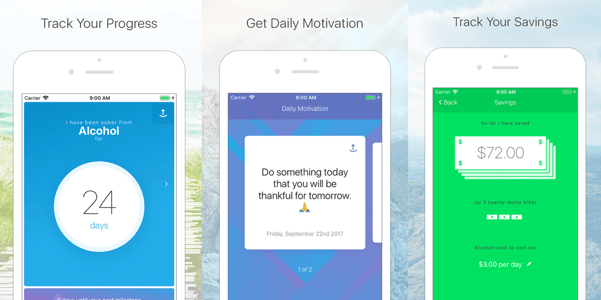How Do I Talk to My Child About Alcohol?
Have you had “the talk” with your kids yet? No, not the birds and the bees talk. The other...

Alcohol awareness is all about being aware of our own alcohol consumption and how alcohol can affect us. Drinking alcoholic beverages is so normalized in our culture, that many will dismiss any negative effects it may cause. However, it’s important to remember that alcohol contributes to 95,000 deaths in the US every year. The reality is, alcohol is a drug that has the potential to ruin lives if we aren’t careful.
Alcohol Awareness Month, observed annually in April, serves as a crucial reminder about the potential dangers of alcohol consumption. Initiated in 1987 by the National Council on Alcoholism and Drug Dependence (NCADD), this month aims to educate the public and encourage community organizations to host events that raise awareness and promote prevention and treatment strategies for alcoholism.
The development of alcohol dependence can occur rapidly for some, while for others, it's a gradual descent. Heavy drinkers, over extended periods, experience brain changes, with their brains relying on alcohol to produce specific chemicals. Initially, alcohol increases dopamine, the "feel-good" chemical. However, chronic use leads to decreased dopamine production, necessitating a higher alcohol intake to achieve the same initial pleasurable effect.
Beyond the physiological dependence, many individuals struggling with alcohol use disorder (AUD) also grapple with mental illness or emotional trauma. Alcohol becomes a coping mechanism, a misguided attempt to escape emotional pain.
It’s important to be aware of how alcohol actually affects your body physically and mentally in the short-term and in the long-term, since alcohol is a major contributor to many diseases and injuries. Here are just a few ways it affects our bodies:
Liver Damage: Even moderate drinking (two drinks at a time) can damage the liver, the organ responsible for processing alcohol. Excessive intake overloads the liver, causing malfunction. Fortunately, the liver has remarkable regenerative capabilities. Reducing or eliminating alcohol consumption allows it to heal.
Cancer Risk: Studies show that women who consume just three alcoholic drinks per week face a 15% increased risk of breast cancer. In general, women experience more negative health effects from alcohol compared to men, even with lower overall consumption levels.
Risky Behavior: Alcohol can induce temporary feelings of extreme confidence, leading intoxicated individuals to engage in risky behaviors like driving under the influence (DUI) or unsafe sexual activity.
High Blood Pressure: Chronic heavy drinking can lead to high blood pressure, a significant risk factor for heart disease, stroke, and kidney disease.
Weakened Immune System: Excessive alcohol consumption weakens the immune system, making you more susceptible to infections and illnesses.
Sleep Problems: While alcohol might initially make you drowsy, it disrupts the natural sleep cycle, leading to fragmented sleep, insomnia, and daytime fatigue.
Depression & Anxiety: Alcohol initially deceives you into feeling good by elevating dopamine levels. However, continued drinking to sustain this feeling disrupts other brain chemicals, ultimately worsening depression. Alcohol suppresses serotonin, a key mood regulator, creating a vicious cycle where drinking to alleviate depression leads to lower serotonin levels, further worsening depression and fueling the need for more alcohol.
Cognitive Decline: Chronic heavy drinking can damage the brain, leading to memory problems, difficulty concentrating, and learning impairments. In severe cases, it can contribute to dementia and Wernicke-Korsakoff syndrome, characterized by memory loss, mental confusion, and difficulty learning new information.
Psychosis: In rare cases, heavy drinking can trigger psychotic episodes, characterized by hallucinations and delusions. This is more likely to occur in individuals with a pre-existing vulnerability to psychosis.
Sleep Disruption: Alcohol disrupts your sleep cycle, contributing to irritability, depression, and cognitive difficulties (brain fog).
Signs You Need to Cut Back on Alcohol:
Secretive Drinking: Feeling compelled to hide your drinking habits is a red flag.
Frequent Hangovers: Regularly waking up with hangovers indicates a problematic relationship with alcohol.
Strained Relationships: Drinking causing tension and conflict with loved ones is a serious concern.
Coping Mechanism: Using alcohol to escape unpleasant emotions or trauma is a sign of unhealthy dependence.
Loss of Control: Frequently exceeding your intended drinking limits points towards a potential problem.
Strong Cravings: Cravings for alcohol can indicate dependence.
If you relate to any of these, it may be a sign to take a break from or cut back on drinking. Remember that addiction is not a moral failing - it is an actual medical condition that needs to be treated as such. Individuals who struggle with substance use often feel too ashamed to ask for help, but it’s important that you address the problem as soon as you recognize it, in order to prevent it from getting worse.
With alcohol being available at many events, restaurants, and stores, and advertisements for alcohol being displayed left and right, it can be difficult to resist the pressure to have a drink. Fortunately, there are so many others who are in the same boat, who can offer their advice and support to help you change your perspective on drinking and sobriety.
I Am Sober: A simple app that tracks recovery using a sobriety counter to log milestones, tracks how much money the user has saved on drugs or alcohol in their sobriety, and offers motivational quotes for support.

Sober Grid: This social networking app allows people to connect with other sober individuals in their local community and worldwide.
There are also many Facebook groups and sober communities on Instagram to help you stay connected in sobriety. Simply search up the hashtags #SoberCommunity and #AlcoholFree on Instagram to find others living a sober lifestyle.
Recovery Happy Hour: This podcast, hosted by Tricia Lewis, celebrates inspiring stories of recovery from alcohol misuse. On her podcast, Tricia discusses life beyond the bottle and what happens after we get sober.
A Sober Girl’s Guide: A podcast featuring honest conversations about mental health, self development, wellness and spirituality and how they influence each guest's unique recovery journey.
This Naked Mind: Control Alcohol by Annie Grace: Annie Grace clearly presents the psychological and neurological components of alcohol use based on the latest science, and reveals the cultural, social, and industry factors that support alcohol dependence in all of us.
The Unexpected Joy of Being Sober by Catherine Gray: This book is about the escape, and why a sober life can be more intoxicating than you ever imagined.
In order to truly be alcohol aware, you need to ask yourself if your drinking is affecting any area of your life in a negative way. If it is, you may want to consider taking a break from alcohol and seeing how your everyday life improves as a result.
If you need support during this time, please reach out to us, and we can provide you with the help and resources you need to make your goals a reality.
Have you had “the talk” with your kids yet? No, not the birds and the bees talk. The other...
Lent is a season in which many people pick a habit that they try to give up for 40 days…just in...
Do you know what this day needs? Wine! Sound familiar? If so, you are not alone. Drinking to...